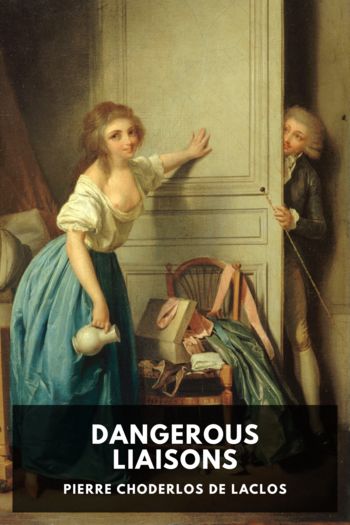The Disappearance of Stephanie Mailer: A gripping new thriller with a killer twist, Joël Dicker [general ebook reader .txt] 📗

- Author: Joël Dicker
Book online «The Disappearance of Stephanie Mailer: A gripping new thriller with a killer twist, Joël Dicker [general ebook reader .txt] 📗». Author Joël Dicker
All the while keeping an eye on the traffic, which was still sparse at that hour of the morning, I replied to a message from Lauren. She had found the perfect man for me and wanted to arrange a dinner so that she could introduce us. When I declined, she came out with her usual refrain: “If you go on like this, Betsy, you’re going to end up alone.” We exchanged a few more texts. I complained about Chief Gulliver, Lauren suggested I return to New York. But I had no desire to do that. Apart from the difficulties I was having fitting in at work, I liked living in the Hamptons. Orphea was a quiet town, a nice place to be, with the ocean on one side and all that nature around. The long sandy beaches, the deep forests, the ponds covered with water lilies, the sinuous arms of the sea with their abundant fauna—these were magical places, all within easy reach. Summers here were wonderfully warm, the winters harsh but filled with light.
I knew it was somewhere I could finally be happy.
JESSE ROSENBERG
Monday, July 7, 2014
Nineteen days to opening night
The front page of the Orphea Chronicle, edition of Monday, July 7, 2014:
THEATER FESTIVAL THREATENED
Could this be the last curtain for Orphea’s theater festival? Having been the center of the town’s summer season for twenty years, this year’s festival seems more under threat than ever after the volunteers, uniquely in the history of this institution, voted to strike over fears for their safety. Now the question everyone is asking is: Without the volunteers, can the festival go ahead?
Betsy had spent her Sunday following up the Kirk Hayward lead. She had tracked down his father, Cornelius Hayward, in a senior citizens’ home in Poughkeepsie, three hours’ drive from Orphea. She had contacted the director, who was expecting us.
“You worked yesterday, Betsy?” I asked in surprise as the two of us set off for the home. “I thought you went to your parents’ for the weekend.”
She shrugged. “The festivities were cut short. I was pleased to have something to do to take my mind off things. Where’s Derek?”
“At troop headquarters, looking through the 1994 case file. It’s bugging him that we could have missed something.”
“What happened between the two of you in 1994, Jesse? From what you say, I get the feeling you were the best of friends.”
“We still are.”
“But in 1994 something came between you . . .”
“Yes, but I’m not sure I’m ready to talk about it.”
She nodded, then said, “What about you, Jesse? What did you do on the Fourth of July?”
“I stayed home.”
“On your own?”
“On my own. I made myself hamburgers with Natasha’s Sauce.” I smiled—I didn’t need to have said that.
“Who’s Natasha?”
“My fiancée.”
“You’re engaged?”
“I was. Now I’m a confirmed bachelor.”
She laughed. “Me, too. Since my divorce, my girlfriends all predict I’ll end up alone.”
“That hurts!”
“It does, a little. But I still hope I’ll find someone. How come it didn’t work out with Natasha?”
“Life sometimes plays strange tricks on us.”
I could see from the look in her eyes that Betsy understood what I was trying to say.
The senior citizens’ home, calledThe Oaks, occupied a small building with flower-filled balconies on the outskirts of Poughkeepsie. In the lobby, old people in wheelchairs watched out for anyone coming in.
“Visitors! Visitors!” an old man with a chessboard on his knees cried out when we appeared.
“Have you come to see us?” asked another old man, a toothless fellow who resembled a tortoise.
“We’ve come to see Cornelius Hayward,” Betsy said politely.
“Why haven’t you come to see me?” a little old lady as thin as a twig asked in a quivery voice.
“My children haven’t been to see me in two months,” the chess player said.
We presented ourselves at the reception desk, and a few moments later the director of the establishment appeared, a pudgy little man in a sweat-stained suit. He eyed up Betsy in her uniform and shook our hands vigorously. His own hand was sticky.
“What do you want with Cornelius Hayward?”
“We’re looking for his son in connection with a case we’re investi-gating.”
“And what has this son of his done?”
“We’d just like to talk to Mr Hayward.”
He led us along corridors to a large room in which the residents were sitting here and there. Some were playing cards, others reading, others simply staring into space.
“Cornelius,” the director said, “you have a visitor, two visitors.”
A tall, thin old man with disheveled white hair, dressed in a thick dressing gown, rose from his armchair.
“The police from Orphea?” he said, staring at Betsy’s black uniform as he came toward us. “What’s going on?”
“Mr Hayward,” Betsy said, “we need to get in touch with your son Kirk.”
“Kirky? What do you want with him?”
“Let’s sit down, Mr Hayward.”
We took our seats, all four of us, including the director, in a corner furnished with a couch and two armchairs. A horde of curious old people gathered around us.
“What do you want with my Kirky?” Mr Hayward said anxiously.
The way he spoke answered our first question. Kirk Hayward was alive and well.
“We’re looking into one of his old cases,” Betsy said. “In 1994, your son did a great job investigating a case of homocide in Orphea. We have reason to believe that the same person may be responsible for the death of a young woman a few days ago. We need to speak to Kirk in order to solve this new case. Are you in touch with him?”
“Yes, of course. We telephone each other often.”
“Does he come here?”
“Oh no. He lives too far away!”
“Where does he live?”
“In California. He’s a great director, you know. He’s going to become very famous. Very famous! When he gets an Oscar, I’ll put on a wonderful suit I have and cheer him to the rafters. You want to see my suit? It’s in my room.”
“Maybe not today,





Comments (0)